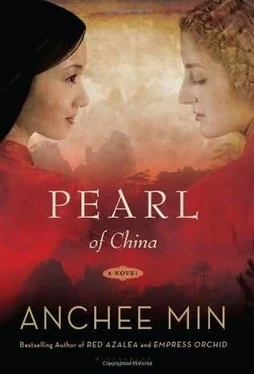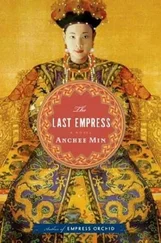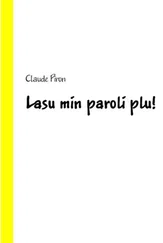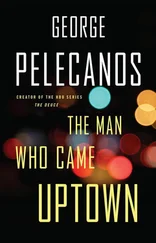“ Pearl,” I said gently. “You have to comb your hair and dress yourself, and you have to eat.”
“I would like to simply slip away, to die,” she responded. “I need to be released from this trap.”
“Have you been writing?” I asked.
“I can’t do anything else but write. Here.” She tossed me a stack of pages. “From last week. Two short stories.”
I glanced at the titles. “The Seventh Dragon” and “The Matchmaker.”
“You have been productive, Pearl.”
“I was going crazy until I started typing.”
I asked if there was any interest from publishers.
“No. One editor from New York was kind enough to send me a note of explanation after rejecting my manuscript. What he said was no news to me. Lossing has been telling me the same thing all along.”
“That Western readers are not interested in China?”
She nodded.
“Well, perhaps they are only accustomed to stories of little merit. It may take time to convince them that what you write is different,” I said. “Have you tried Chinese publishing houses?”
Have you “Yes.”
“And?”
“I made a fool of myself,” she sighed. “The right-wing Chinese houses want pure escapism, while the left-wing want nothing but Communism and Russia.”
“And you don’t care about either of those?”
“No.”
“Unfortunately, you still need money.”
“Unfortunately.”
I invited Pearl to come with me to a New Year’s party hosted by the Nanking Daily. Pearl didn’t want to go, but I insisted.
“Hsu Chih-mo will be there.” I could hardly contain my excitement.
“Too bad he is your interest-not mine.”
“He’s the only one who hasn’t read you. He told me he wants to read your work.”
“I am not going.”
“Please. I don’t want to look desperate.”
“Desperate? Oh, I see.”
“Will you come?”
“Okay, I’ll go for tea only.”
Hsu Chih-mo stood on a chair waving his arms. “Ladies and gentlemen, I want to present my best friend, the great hope of China ’s new literature, Dick Lin! He is the seventh translator of Karl Marx’s Communist Manifesto and the editor of the Shanghai Avant-Garde Magazine.” Hsu Chih-mo was dressed in a Western black silk suit with a Chinese collar and Chinese cotton shoes. His hair was neatly combed from the middle to the sides.
The crowd cheered. “Dick Lin! Dick Lin!”
Dick Lin, a short and broad-shouldered man with black-framed glasses, came to shake hands with Pearl and me. He was in his thirties. He had a pair of lizard eyes and a crooked nose. The corners of his mouth drew downward and gave him a serious, almost bitter expression.
“I admire your work at the Nanking Daily,” Dick blurted out to me. “How about working for us?”
Though I was flattered, I was taken aback by his directness.
“You will be guaranteed your own page plus the weekend edition,”
Dick continued. “You can run it any way you want. We’ll match your current salary and add a bonus.”
I turned to Pearl. My eyes said, “Can you believe this man?”
She smiled.
Dick turned to Pearl and began to speak English with a Chinese accent. “Welcome to China,” he said, bowing with exaggeration. “It is my honor to meet you! Hsu Chih-mo tells me that you came to China in diapers. Is that true? No wonder your Chinese is flawless. Do you know Chinese is a very dangerous language for foreigners? One slip in tone and ‘Good morning’ becomes ‘Let us go to bed together.’”
The debate was moderated by Hsu Chih-mo. The topic was “Should novelists write for people or write as people?” The discussion soon became heated.
“A novelist’s duty is to wake society’s conscience,” Dick insisted. “He must make the peasants learn shame-I am talking about those who bought and ate the bread made of the bodies of the revolutionaries!”
The crowd clapped.
“ China is where she is because our intellectuals are selfish, arrogant, decadent, and irresponsible,” Dick continued. “It’s time for our novelists to demonstrate leadership…”
Pearl raised her hand.
Hsu Chih-mo nodded for her to speak.
“Have you ever thought,” she said, “that it might be the author’s choice to write as the people? No matter how you justify the horror of an act like the one you just used as an example, the fact is that China’s majority is made of peasants. My question is, Don’t peasants deserve a voice of their own?”
“Well, you must pick a worthy peasant to portray,” Dick responded. “Like harvesting a fruit tree, you pick the good apples and throw away the rotten. Again, you have an obligation toward society, which needs a moral compass.”
“Does that mean you won’t publish authors who write with the voice of the real people?” I asked.
“Personally, I won’t.”
“Then you are denying representation to ninety-five percent of China ’s population.” Pearl ’s voice was pitched.
Holding firm in his view, Dick declared, “We deny these small-minded, ill-mannered characters a voice.”
“Who will you publish then?” I asked.
“The authors who are committed in their fight against Capitalism,” Dick replied. “In fact, we are aggressively seeking to publish works by authors that represent the proletarian class. We’ll assure these authors’ success.”
“Dick wants to change the world,” Hsu Chih-mo teased.
“Shouldn’t it be up to the readers?” Pearl challenged.
“No,” Dick said. “Readers need guidance.”
Smiling, Pearl disagreed. “Readers are smarter than we think.”
“Mrs. Buck.” Dick lowered his voice, although it was still loud enough for the room to hear. “I was the editor who rejected your manuscript. I am sure you have tried other publishers without success. My point is that we, not readers, decide.”
Pearl got up and quietly walked out of the room.
I rose and followed her.
Outside in the hall, Pearl rushed toward the door. Hurrying my steps, I suddenly heard footfalls behind me. I turned and there was Dick Lin, coming my way.
I paused, thinking that he might wish to apologize for his rudeness toward my friend.
“ Willow,” he called out as I stopped. “ Willow, when can I see you again? I would love to buy you a cup of tea sometime.”
I sneered and turned, making my way toward the door.
Hsu Chih-mo’s wet hair fell across his face. He stood in front of me by the garden door. His hand reached up to his face to wipe away the rain. “I come to apologize to Pearl for my friend if he has offended her.”
I said, “Pearl Buck has told me that she no longer wishes to be part of the Nanking literary circle.”
“Dick didn’t mean to attack.” Hsu Chih-mo insisted that he have a chance to speak with Pearl face-to-face.
I stood looking at him and wanted time to stop. My emotions churned and I started to feel sick inside. I kept telling myself: The man has no interest in me! But my heart refused to listen. My eyes luxuriated in the sight of him.
Hsu Chih-mo looked away uneasily.
“I will pass the message,” I said like a fool.
Pearl sat by the table and drank her tea as if she was lost in her own thoughts. I had torn her away from her writing and brought her to my house so that Hsu Chih-mo could talk to her. I was sure that Pearl would leave as soon as he delivered his friend’s apology. I waited impatiently for my own private time with Hsu Chih-mo.
“Dick is oblivious.” Hsu Chih-mo leaned forward, holding his cup in both hands. “He is combative by nature, but he is good-hearted. He is a genius. To have a conversation with him is like planting seeds together. Wisdom will sprout once you allow sunshine. Only those who appreciate honesty can enjoy Dick. He is passionate about what he believes.”
Читать дальше












